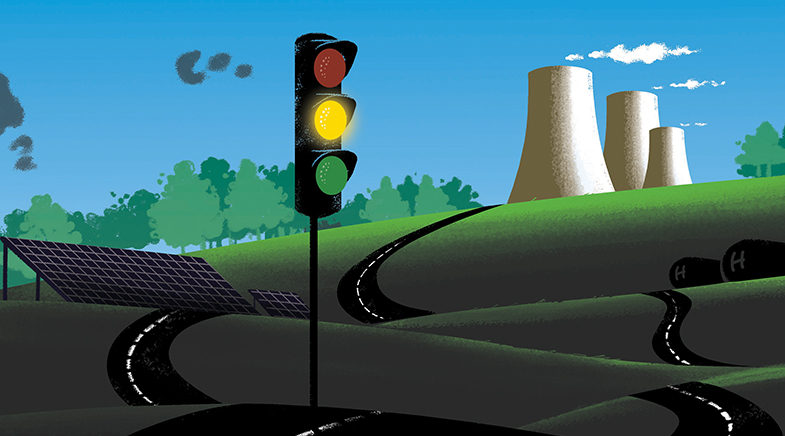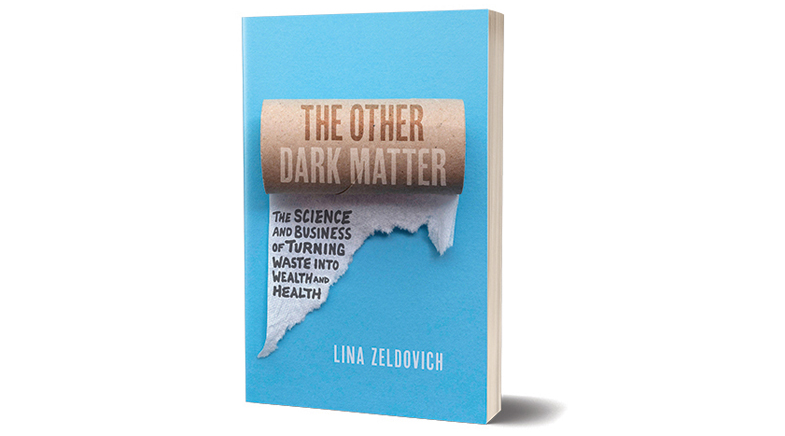'Future of science in India is bright'
-
- from Shaastra :: vol 04 issue 04 :: May 2025

Principal Scientific Adviser Ajay K. Sood on the path to technological sovereignty.
Professor Ajay K. Sood is a condensed matter physicist and the Principal Scientific Adviser to the Government of India. As a physicist working at the Indian Institute of Science, Bengaluru, he had made several fundamental discoveries and developed commercial applications. A phenomenon where a fluid passed over nanotubes generates a current is known as the Sood Effect. In this interview, he suggests how research can impact the world over the next few decades. Excerpts:
There is pressure on all countries to increase investments in science – and on a lot of other things as well. Isn't it a major challenge to balance these?
It is a zero-sum game, of course. How the priorities get decided depends on the policies of the government. In India's case, the Gross R&D expenditure (GERD)-to-GDP ratio is roughly constant at 0.7%. But the absolute numbers of GERD have more than doubled: GDP has increased, and this ratio has remained the same. Everyone would like to see it going higher. In the 0.7% GERD, almost 65% comes from government sector – specifically, the Centre. State government contribution is almost negligible. Private sector funding, at 35%, is modest compared to other economies.
How can India balance fundamental research with translation?
In the last hundred years, the gap between the two has narrowed. The time it takes to go from basic research to commercialisation has come down. I'm not saying you ignore or sidestep applications. Let's call it translational research or directed research. We need to make sure that our science outcomes benefit society. We should do highest quality basic science, but we also keep an agile mind – namely, what could be the applications of the fundamental work we do?
One area that is relevant to this discussion is quantum technology, which is nothing but engineering of quantum mechanics. Quantum mechanics was discovered in 1913, the Bohr atom model and all that. Many things happened and parallel growth in many fields like new materials cryogenics, nanotechnology etc. which led to quantum technology about 15 years back. This time gap is reducing now, which is a good sign, not only for India, but for the world. We will use the most fundamental science to do disruptive technology, and disruptive technology will feed into basic science.
What is your outlook for science over the next 10 years?
My answer will be incomplete. In physical science, quantum technology and AI (artificial intelligence) are two cutting-edge technologies that are here to stay for another 50 years. Of course, when I say AI, high-performance computing is an integral part of it. What you call digital science, I'm putting in a broad framework of digital transformation and AI. The one thing that I'm adding to it is quantum technology.
"We need to make sure that our science outcomes benefit society. We should do the highest quality basic science... but (with) an agile mind."
In biological science, it will be a paradigm shift. You already have CAR-T cell (chimeric antigen receptor T cell) therapies. You have individualised cell and gene therapies. All the high-end technology will happen.
I will also put in agriculture, which is the mainstay of many economies. Agricultural science is also undergoing a drastic change these days. Because our climate is changing, we need adaptation, we need to conserve water. We need to do many things in agriculture, including judicious use of fertilizers, and nano-fertilizers. The next thing that will happen is energy transition… in fact, it has already started. Electrolysers have to be made efficient. Fuel cells have to be made efficient. But also, new pathways may come to make methane and green hydrogen.
The sleeping tiger is the fusion technology. It is a matter of time. This, again, will be a game changer. I don't think anyone has a good guess of the timeline. Hybrid of fusion-fission is one area to look at.
What is the future for science and the researcher?
The future of science and researchers in India is bright, forward- and positive-looking. Our bright students should be encouraged to come to research and contribute to nation-building. We need to provide the right opportunities to our researchers so that we can be globally competitive.
In this endeavour, the tripartite collaboration between academia (including national laboratories), industry and government is being encouraged under the current leadership through the ladder of science and technology. This will give us technological sovereignty.
See also:
Mind the gap in science funding
Science revision
'AI lacks a conceptual grasp'
'The whole world should team up'
Have a
story idea?
Tell us.
Do you have a recent research paper or an idea for a science/technology-themed article that you'd like to tell us about?
GET IN TOUCH














